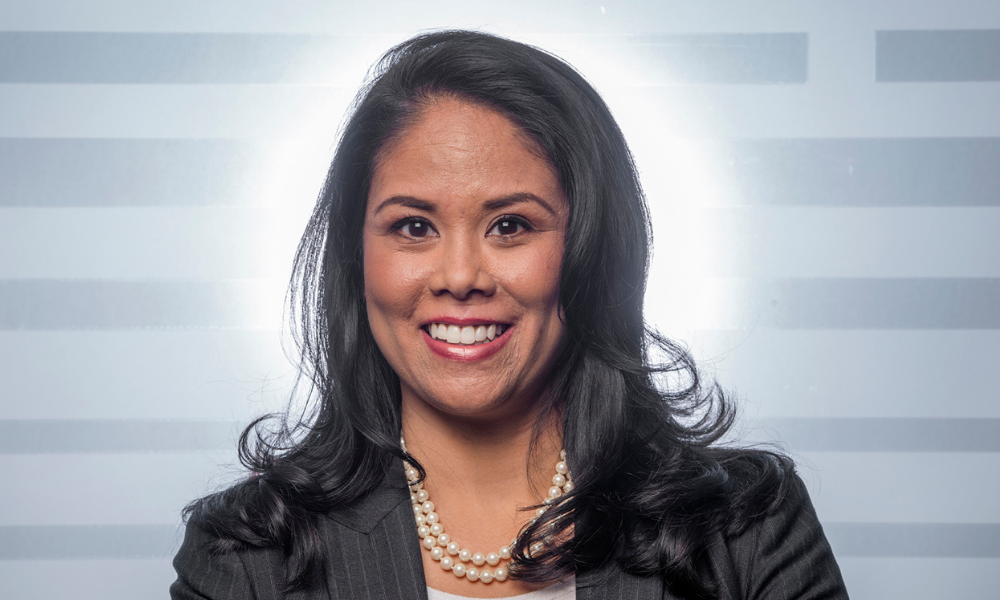
Look to leaders that you have worked with and admire to develop a style, says Akai

Developing a leadership style is a delicate balance of ensuring there is input for all team members but providing clear guidance for moving forward after listening to all points of view, says Gillian Akai, Chief Administrative Officer and General Counsel at Postmedia Network.
“It’s something those in leadership positions have to struggle with, getting the right balance,” says Akai. “I’ve tried to create a very open conversation and dialogue, not only with members of my team, but to others within the organizations.”
She adds her hope is that others do offer something new, “something that challenges the way I was thinking about the situation,” or an opinion that provides a contrary view and plays “devil’s advocate.” The trick is to create a “culture of trust” that these opinions are a welcome part of the process.
However, a good leadership style comes down to taking all the different points of view into account and then saying: “I’ve listened to you all, I’ve given you a chance to have your say, but this is the path we are taking forward, based on the information and resources that we have.”
Akai says that her goal is that those on her team will acknowledge that, even if it was not the way they might have gone, they can “get behind it because there was a process in which we were all involved.”
Akai joined Postmedia’s predecessor company in 2006 and added corporate secretarial duties to her legal affairs responsibilities in 2010. In 2018, she became Postmedia’s Chief Administrative Officer, along with keeping her role as General Counsel, which she has held since November 2016. Akai is responsible for Postmedia’s legal and regulatory affairs, corporate governance, employee relations, and HR policies.
Before joining Postmedia, Akai was an associate at Fraser Milner Casgrain LLP (now Dentons Canada LLP) and worked within the firm’s business law group focusing on private mergers and acquisitions, technology and software licensing and general corporate commercial work.
She will be one of the speakers at Canadian Lawyer’s daylong Women in Law Leadership Forum on Sept. 9.
Along with transparency, another essential aspect of leadership is the ability to change an earlier decision based on new information without being considered wishy-washy. “If you have been transparent initially, and another factor emerges that becomes more important than the factors you based your earlier decision on, your team will understand the change directions,” Akai says.
“You’ve laid the groundwork for why there might be changes, because you’ve been transparent in the first place. It won’t come as a big shock.”
As part of developing your leadership style, Akai says she thinks “it can go in many different directions, but it has to be something that works for you.” She says it isn’t simply a matter of copying someone else’s style, “but taking a cue from leaders that you admire, especially those you have worked with and incorporating those traits into your leadership style.”
Adapting aspects of an admired leader’s style “forces you to get outside of your comfort zone to see if there is a different way of doing things that works for you.”
While Akai says she has personally never come across people who have told her that female leaders must “act more like a man” when they get into leadership positions, she considers this a “pretty old-school way of looking at the world.” Instead, she says, leaders of all genders should consider taking on aspects of all leadership traits – whether they are labelled “female” or “male” - that work best for them.
“And furthermore, you should develop the ability to adapt to a situation with different styles for the task or the people you are working with. Some may be considered more stereotypically male, some more female, but if they work, go for it.”
Just as there are many leadership styles, there are many ways of being a valued member of a team, says Akai. Some might be great at talking at meetings, others not so much. Some might need to be asked for their opinions, and others might be better approached individually outside a meeting structure.
“A great leader “looks at all components of the team and creates an environment that allows each of these people to contribute in the most meaningful way they can.”
“The important thing is that you ensure you are creating an inclusive culture where your team can besgt perform.”
Akai - who holds a joint Bachelor of Laws and MBA from the Osgoode Hall Law School and Schulich School of Business at York University - admits that those who have trained as lawyers may have to put some work into developing a leadership style.
“Leadership is not part of our education, training or articling – for many years you are focused on your legal and technical expertise.”
Her advice is for lawyers to grab any chance to take on some leadership roles. “You have to actively seek them out and put your hand up for, because it’s a unique experience that we should all develop in order to progress.”